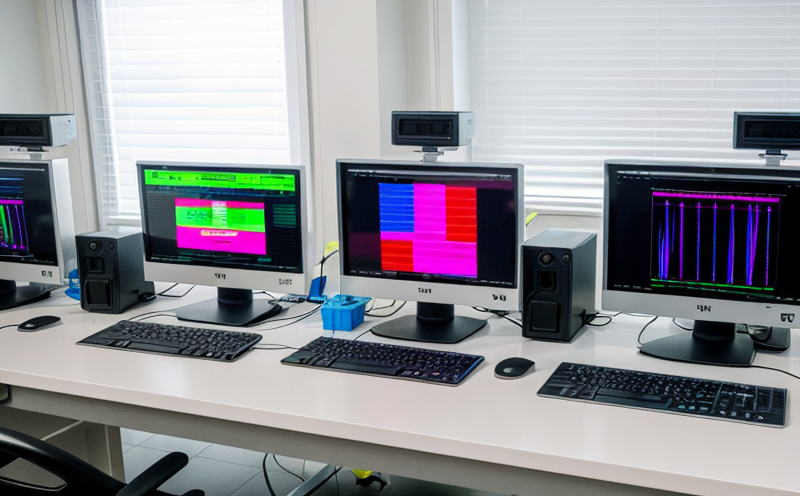EN 17111 Virucidal Testing of Hand Hygiene Products
The European Standard EN 17111 sets out methods to evaluate the virucidal efficacy of hand hygiene products. This test is critical for ensuring that hand sanitizers and other formulations meet stringent standards for reducing viral contamination on surfaces, particularly in healthcare settings where cross-contamination poses significant risks.
Developed by experts from various sectors including healthcare, pharmaceuticals, and consumer goods, EN 17111 is widely recognized as a robust framework. This standard ensures that hand hygiene products effectively reduce the viability of specific viruses such as rotavirus, influenza A virus, norovirus, and others. The test protocol involves exposing a controlled viral inoculum to the product for a specified period under defined conditions, followed by incubation steps to assess the reduction in viral replication.
The procedure meticulously outlines the necessary steps to ensure accuracy and reliability of results. Specimen preparation is crucial; it involves creating a standardized solution containing the target virus. This solution is then applied according to predefined protocols onto test coupons or relevant surfaces. The treated samples are incubated for an extended period, typically up to 24 hours, to observe any changes in viral activity.
The acceptance criteria specify that at least a 99.9% reduction in the viable virus population must be achieved within one minute of exposure to the test product. This stringent requirement underscores the need for rigorous testing and compliance with international standards. The results are reported quantitatively, providing clear data on the virucidal efficacy of the tested hand hygiene products.
The significance of EN 17111 lies in its role as a benchmark for quality assurance and safety in healthcare environments. By adhering to this standard, manufacturers can demonstrate their commitment to producing safe and effective products that contribute significantly to infection control measures. The test not only benefits the healthcare industry but also extends its impact across various sectors where hygiene is paramount.
Real-world applications of EN 17111 highlight its importance in ensuring product efficacy under diverse conditions. For instance, during outbreaks like the H1N1 pandemic, products that meet these standards became essential tools for public health agencies and healthcare providers. The standard’s robustness allows it to adapt to emerging threats, such as novel coronavirus variants, by providing a framework for rapid validation of new formulations.
Understanding the intricacies of EN 17111 aids professionals in selecting appropriate products that meet regulatory requirements and enhance overall hygiene protocols. This knowledge is particularly valuable for quality managers, compliance officers, R&D engineers, and procurement teams involved in product development and supply chain management.
Applied Standards
The EN 17111 standard incorporates various international guidelines to ensure comprehensive evaluation of virucidal efficacy. It aligns with ISO standards for sterility testing and biocompatibility, providing a holistic approach to product safety and effectiveness.
The standard specifies the use of standardized viral strains such as those from the World Health Organization (WHO) and American Type Culture Collection (ATCC). These strains are chosen for their relevance in healthcare settings. The protocol also emphasizes the importance of consistent environmental conditions during testing, including temperature, humidity, and exposure time.
The acceptance criteria are based on a 99.9% reduction rate within one minute of product application. This threshold is critical as it reflects real-world scenarios where immediate action is required to prevent cross-contamination. The use of standardized methods ensures that results across different laboratories are comparable, enhancing the reliability and credibility of the testing process.
The standard’s detailed methodology covers specimen preparation, exposure times, incubation periods, and quantitative assessment techniques. These aspects ensure a thorough evaluation of virucidal properties under controlled conditions. Compliance with these standards is essential for maintaining product efficacy and ensuring regulatory compliance.
Why Choose This Test
The EN 17111 test offers several advantages that make it indispensable for manufacturers and healthcare providers looking to enhance hygiene protocols:
- Accurate Efficacy Evaluation: The standardized protocol ensures precise evaluation of virucidal efficacy, providing reliable data on product performance.
- Compliance with International Standards: Adherence to EN 17111 guarantees compliance with global regulatory requirements, facilitating market entry and acceptance.
- Enhanced Safety and Effectiveness: The rigorous testing process ensures that products are safe for use in healthcare settings and contribute effectively to infection control measures.
- Cost-Effective Solutions: By ensuring product efficacy early in the development stage, EN 17111 helps avoid costly rework and recalls later.
- Reputation Building: Demonstrating commitment to hygiene standards through EN 17111 enhances brand reputation and customer trust.
- Innovation Facilitation: The standard’s robust framework supports the development of new formulations that meet emerging healthcare needs.
The test is particularly beneficial for manufacturers seeking to differentiate their products in a competitive market. By achieving EN 17111 certification, they can position themselves as leaders in hygiene and safety, thereby gaining a competitive edge.
Competitive Advantage and Market Impact
The EN 17111 test provides significant advantages for manufacturers looking to stand out in the market. Compliance with this standard enhances product reliability, ensuring that formulations meet stringent virucidal efficacy requirements. This reliability is crucial in healthcare settings where trust in products is paramount.
By adhering to EN 17111, manufacturers can demonstrate their commitment to quality and safety, thereby building a strong reputation among consumers and healthcare providers. This reputation translates into increased market share and customer loyalty. The standard also supports innovation by providing a reliable framework for developing new formulations that meet emerging health challenges.
The test’s impact extends beyond the immediate product; it contributes to broader public health goals by promoting effective hygiene practices. In healthcare settings, where cross-contamination can have severe consequences, products that meet EN 17111 standards play a critical role in infection control measures. This contribution enhances overall public trust and confidence in hygiene products.
In conclusion, the EN 17111 test offers significant competitive advantages by ensuring product reliability, enhancing reputation, supporting innovation, and contributing to public health goals. These benefits are essential for manufacturers seeking to differentiate their offerings and meet the evolving needs of healthcare providers and consumers alike.





